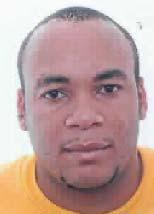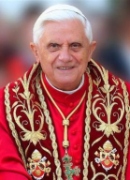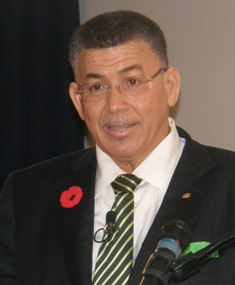Archive for November 10th, 2009

Offshore industry report paints a different picture
 (CNS): A new report from the Society of Estate and Trust Practitioners (STEP) examining the roll of offshore finance in the global economy paints a very different picture to the one currently making headlines. Not surprisingly, the industry body has found that what it calls international financial centres (IFCs) have a very positive impact on the world economy. Contrary to current modes of thinking, the report concludes that not only do IFCs not divert tax revenues away from the onshore economies, they help the larger economies generate more money which they can tax.
(CNS): A new report from the Society of Estate and Trust Practitioners (STEP) examining the roll of offshore finance in the global economy paints a very different picture to the one currently making headlines. Not surprisingly, the industry body has found that what it calls international financial centres (IFCs) have a very positive impact on the world economy. Contrary to current modes of thinking, the report concludes that not only do IFCs not divert tax revenues away from the onshore economies, they help the larger economies generate more money which they can tax.
The report, International Financial Centres and the World Economy, which was commission by the international body that represents thousands of professionals working in the area of trust and wealth management around the world, was written by an academic from the University of Michigan and NBER. James R. Hines Jr. uses a considerable amount of academic research in his study rather than anecdotal evidence about the effect IFCs have on the rest of the world.
While the report has an obvious bias because of its backers, the use of empirical evidence affords the findings certain credibility and adds fuel to the argument that IFCs are not the source of all evil but are serious players in the global economy. The report suggests that the evidence flies in the face of currently held assumptions about offshore finance.
“IFCs occasionally raise concerns that they may erode tax collections, divert economic activity, and otherwise burden nearby high-tax countries. A large body of economic research over the last 15 years considers these issues, with findings that point sharply in the opposite direction: the evidence strongly suggests that the policies of IFCs contribute to investment, employment, and the efficient functioning of markets and government policies in other countries,” Hines writes in the report.
According to his findings, the evidence reveals that IFCs are not the locations of choice for anonymous accounts and other vehicles for international tax evasion but it is the large countries such as the United States and the United Kingdom instead that attract those looking for those services. Hines even suggests that the low tax rates available in IFCs contribute to a form of tax competition that increases the efficiency of tax policies elsewhere by distinguishing between highly mobile international investments that are very responsive to tax rate differences, and less mobile domestic, investments that large countries are able to tax at high rates.
“The findings of this research point to conclusions very different from those on which the concerns about IFCs are based,” he writes. “Virtually all of the complaints about IFCs appear to have little economic merit, with the evidence instead pointing to the benefits that IFCs confer on other countries. Far from eroding the tax bases of high-tax countries, there is evidence that IFCs improve the operation of the tax systems of high-tax countries, thereby contributing to their ability to raise tax revenue.”
Hines says that IFCs promote rather than depress economic activity elsewhere, but he says few people ever take the time to look at the evidence that favours offshore centres, and hence the tenacity of the opposite image. “Wading through this material can be a dreary business, which makes it understandable that many interested observers instead proceed on the basis of informed intuition together with snippets of anecdotal evidence,” Hines writes.
Citing the work of Jason Sharman, who approached service providers in 22 different countries about the possibility of creating shell corporations and anonymous bank accounts, he says Sharman failed to establish any in commonly identified IFCs but was successful in a number of onshore locations.
While Sharman was turned away in the Bahamas, the British Virgin Islands, the Cayman Islands, Dominica, Nauru, Panama, and the Seychelles, he found OECD countries, including the United States, the United Kingdom, Spain and Canada, to be very helpful in his enterprise. Hines argues that as the same approaches were used in each case and Sharman has full knowledge of when he was and was not successful, the evidence is powerful.
In his research Hines concludes that IFCs contribute to the operation of economies worldwide by stimulating foreign direct investment in high-tax parts of the world; disciplining financial markets in other parts of the world and promoting good governance and accountability. He also argues that the evidence indicates that IFCs contribute to financial development and stability in neighbouring countries, encourage investment, employment, and other aspects of business development in high-tax countries, have salutary effects on tax competition and enhance economic growth elsewhere.
“This evidence appears to be quite robust, and suggests a rather different interpretation of the IFC experience than some that appear from more casual readings of the history,” Hines says. He goes on to describe IFCs as pressure valves, assisting the policies of their high-tax neighbours by letting off economic steam when the pressure becomes too great. He also noted that no economic limits resulted in greater innovation, production and prosperity.
Likely to be music to the ears of those engaged in the argument to persuade the onshore OECD country’s of the merits of jurisdictions like the Cayman Islands, Hines says that the economic successes of international financial centres does not threaten the prosperity of other parts of the world but appears to enhance it.
Car-maker battles Crocs over “Cayman” copyright
(autoblog): Porsche AG is known for vigorously defending its intellectual property. It’s understandable, as the company has spent more than half a century building its performance-oriented automotive brand around design patents, logos, and the company’s familiar vehicle nomenclature. Crocs, Inc., on the other hand, is a shoe manufacturer credited with introducing the world to low-cost injection-molded foam footwear. Crocs does not build cars… um, thankfully. What Crocs did do was name its popular sandal the "Cayman" .

Fugitive found guilty
 (CNS): Although still on the run, Dainian Cecil Henry, who is wanted by police in connection with a firearms offence, was found guilty on Tuesday morning of being concerned with the possession and intent to supply of cocaine. Magistrate Grace Donalds read her verdict in the case in the absence of the defendant, who was also absent for his trial last month. She explained that although proceeding with a trial when the offender was not present was something the courts should rarely undertake, it was justified in a case such as this where a defendant had wilfully failed to turn up in an attempt to frustrate the course of justice.
(CNS): Although still on the run, Dainian Cecil Henry, who is wanted by police in connection with a firearms offence, was found guilty on Tuesday morning of being concerned with the possession and intent to supply of cocaine. Magistrate Grace Donalds read her verdict in the case in the absence of the defendant, who was also absent for his trial last month. She explained that although proceeding with a trial when the offender was not present was something the courts should rarely undertake, it was justified in a case such as this where a defendant had wilfully failed to turn up in an attempt to frustrate the course of justice.
Henry is wanted by the RCIPS following his escaped from custody at George Town Police Station on 28 October. The fugitive had been arrested at that time in connection with a separate firearms offence. Following this drug conviction, a warrant has now been issued for his arrest by the magistrate in connection with this case as well. There is currently a reward of CI$5,000 on offer, over and above the usually crime stoppers US$1000, for information that leads to the arrest of Henry or a conviction regarding the firearms arrest.
Reading her verdict in Summary Court on Tuesday 10 November, Donalds recalled how the court had heard during the trial that, while in Jamaica, Henry had supplied more than 20 cocaine pellets to a witness (that cannot be named for legal reasons), which the witness had swallowed and transported to the Cayman Islands, where he was later arrested.
Donalds explained that police had also testified during the trial and corroborated the witness statements. The pellets were reportedly passed by the witness while he was in police custody and Donalds said the Crown had proved its case against Henry, regardless of his absence.
Explaining the rationale behind the decision to continue with Henry’s trial and subsequent verdict despite the fact he was not in court,Donalds said provision was made under Section 60, sub section five of the penal code. Consent was taken to be given by a defendant when he chooses not to attend, despite knowing the date of his trial. The magistrate stated that this provision for the courts to continue a trial in the absence of a defendant was to discourage offenders from unjustified absences, to encourage swift resolution of justice and to protect the interests of victims and witnesses.
In this case, Donalds noted that the defendant had no grounds of complaint that he was not heard as he had the opportunity to appear in court and was well aware of the trial date but had wilfully chosen not to attend.

Nat Geo debunks 2012 myths
 (National Geographic News): It’s almost the end of the world, according to purported Maya predictions, and the 2012 apocalypse business is booming. Survival kits, documentaries, and nearly 200 books presenting the "real" 2012 story are all on offer. And you could probably surf the Web from now until Armaggedon—tentatively slated for December 21, 2012—and still see just a fraction of the Web sites and products devoted to the topic. But amid all the hype—including a viral marketing campaign for 2012, the disaster movie opening Friday—some people are developing honest "end times" anxiety that has experts seriously concerned.
(National Geographic News): It’s almost the end of the world, according to purported Maya predictions, and the 2012 apocalypse business is booming. Survival kits, documentaries, and nearly 200 books presenting the "real" 2012 story are all on offer. And you could probably surf the Web from now until Armaggedon—tentatively slated for December 21, 2012—and still see just a fraction of the Web sites and products devoted to the topic. But amid all the hype—including a viral marketing campaign for 2012, the disaster movie opening Friday—some people are developing honest "end times" anxiety that has experts seriously concerned.

Vatican joins search for ET

 (Telegraph): The Vatican’s Pontifical Academy of Sciences is holding its first ever conference on alien life, the discovery of which would have profound implications for the Catholic Church. The Academy is holding a conference on astrobiology, the study of life beyond Earth, with scientists and religious leaders gathering in Rome this week. For centuries, theologians have argued over what the existence of life elsewhere in the universe would mean for the Church.
(Telegraph): The Vatican’s Pontifical Academy of Sciences is holding its first ever conference on alien life, the discovery of which would have profound implications for the Catholic Church. The Academy is holding a conference on astrobiology, the study of life beyond Earth, with scientists and religious leaders gathering in Rome this week. For centuries, theologians have argued over what the existence of life elsewhere in the universe would mean for the Church.

Expanding islands of trash
 (New York Times): Aboard the Alguita, 1,000 miles northeast of Hawaii — In this remote patch of the Pacific Ocean, hundreds of miles from any national boundary, the detritus of human life is collecting in a swirling current so large that it defies precise measurement. Light bulbs, bottle caps, toothbrushes, Popsicle sticks and tiny pieces of plastic, each the size of a grain of rice, inhabit the Pacific garbage patch, an area of widely dispersed trash that doubles in size every decade and is now believed to be roughly twice the size of Texas. But one research organization estimates that the garbage now actually pervades the Pacific, though most of it is caught in what oceanographers call a gyre like this one — an area of heavy currents and slack winds that keep the trash swirling in a giant whirlpool.
(New York Times): Aboard the Alguita, 1,000 miles northeast of Hawaii — In this remote patch of the Pacific Ocean, hundreds of miles from any national boundary, the detritus of human life is collecting in a swirling current so large that it defies precise measurement. Light bulbs, bottle caps, toothbrushes, Popsicle sticks and tiny pieces of plastic, each the size of a grain of rice, inhabit the Pacific garbage patch, an area of widely dispersed trash that doubles in size every decade and is now believed to be roughly twice the size of Texas. But one research organization estimates that the garbage now actually pervades the Pacific, though most of it is caught in what oceanographers call a gyre like this one — an area of heavy currents and slack winds that keep the trash swirling in a giant whirlpool.

Bush on Cayman sales trip
 (CNS): With the UDP government focusing on attracting new business and inward investment back to the Cayman Islands, the premier and his delegation are embarking on a tour of five major world cities to spread the word that Cayman is open for business. With an eye on the investment management community, a key message that McKeeva Bush plans to deliver is that the jurisdiction is making immigration policy more business friendly and that Cayman is welcoming investors to come and settle on the island and make it their home.
(CNS): With the UDP government focusing on attracting new business and inward investment back to the Cayman Islands, the premier and his delegation are embarking on a tour of five major world cities to spread the word that Cayman is open for business. With an eye on the investment management community, a key message that McKeeva Bush plans to deliver is that the jurisdiction is making immigration policy more business friendly and that Cayman is welcoming investors to come and settle on the island and make it their home.
He explained that government will be participating in a series of networking events targeted primarily at investment management professionals, starting in London and including New York, Hong Kong and Singapore over the course of November.
“We will be telling these audiences about some new initiatives that will help make the Cayman Islands even more attractive to international business, such as making the immigration process quicker and easier for financial services firms and offering a dedicated service to help investors who choose to locate their businesses in the Cayman Islands with the practicalities of finding office space, relocating their families and securing staff,” Bush said at the press briefing last Thursday.
Speaking to Reuters when he arrived in London, Bush said his main concern was to explain plans for making the islands an easier place for financial services personnel to live in. Bush said he would like some of the 8,000 plus hedge funds that are registered in Cayman to be more than just brass plaques.
The trip will also be about promoting the quality of business in Cayman and the usual battle to dispel myths. Speaking to the local media before he left for the UK after the Constitutional celebrations on Friday, he said his goal was to uphold the Cayman Islands’ position as an international business centre and increase awareness of the jurisdiction generally, including as a tourist destination.
“We cannot stand still while the local economy faces challenges, so I have tried to move quickly and decisively,” he said. “The government is convinced that it must move aggressively with policy changes to enable the economy to not only recover but to show sustainable growth over the short to medium term. Improving inward investment is one of our policy objectives and this is the rationale behind this important initiative. We must be out there telling world about the good points of Cayman and not leave it up to rumours and scaremongering.”
Bush said he didn’t like teleconferencing and doing things by BlackBerries and said he felt he needed to do things face to face as he justified the overseas travel.
Meanwhile, when talking to Reuters at the weekend Bush also said that he was not concerned about the latest news over a possible bank transaction tax. “That’s an old hat. I have been hearing about it for 25 years. It’s just not practicable. It will not work,” Bush told the international news organization. “We have looked at it and we do not think this is something that would work.”